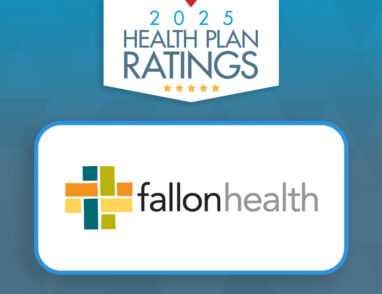NCQA Fireside Chat: A Conversation With Kate McEvoy of NAMD
July 16, 2024 · Maya Spieske
In our recent Fireside Chat, we brought together two forward-looking health care leaders united in their commitment to quality and their passion for improving care for Medicaid populations.
NCQA Founder and President, Peggy O’Kane, hosted Executive Director of the National Association of Medicaid Directors (NAMD), Kate McEvoy, in a dynamic conversation covering a range of Medicaid topics including state innovations, the growing national focus on behavioral health and the standardization and modernization of quality measures.
This blog captures key highlights from their discussion. The full Fireside Chat recording can be watched in our video gallery.
1115 Waivers Bring Innovation to Medicaid, But Delays Cause Concern
Kate considers 1115 waivers to be “substantially the most exciting untold story of the last 5 years.” 1115 waivers are special demonstrations that allow states to pilot new Medicaid approaches outside federal program rules. Initially launched in a small group of states and territories, today, 54 Medicaid programs have waivers implemented or in progress.
1115 waivers have become the cornerstone for states looking to tailor Medicaid to local needs. Among the states leading the way in innovative service delivery is Tennessee, which is expanding maternal health support and covering diapers for children. Kate also praised North Carolina, Illinois and Montana for leveraging the reentry waiver to support people transitioning out of incarceration.
Over 80 proposals await CMS review. But despite CMS’s committed efforts, it has not received additional funding to increase staffing in nearly a decade, limiting its ability to meet demand. Kate stressed the need for more staffing to manage waiver processing efficiently. She also highlighted NAMD’s work with CMS in bundling waivers and developing templates to streamline processing.
Read Kate’s article in Health Affairs Forefront, which outlines the legislative actions Congress should pursue to advance innovation in Medicaid.
Behavioral Healthcare Takes Center Stage
Peggy and Kate’s conversation also delved into the critical role of primary care, particularly in integrating behavioral health services.
“If I were to identify the top priority for all Medicaid directors and Health and Human Services secretaries, it is squarely behavioral health,” said Kate. “There is an absolute national consensus around the need for addressing gaps in the continuum, especially on the community-based side.”
The pandemic highlighted a widespread need for behavioral health services, especially among young children. Early screening efforts under the Affordable Care Act played a crucial role in identifying this need; now, the primary focus is adequately resourcing services within local communities to bridge gaps in care.
Despite ongoing challenges such as workforce limitations and federal support for staffing, Medicaid programs have made strides in improving access and quality of behavioral health services. This includes initiatives like telehealth, community health workers, peer supports and certified community behavioral health clinics.
Data Is Key to Unlocking Quality Improvement
Another focal point of the conversation was the need to standardize quality measures across Medicaid programs and improve health care data.
Both women spoke about the importance of using robust clinical data to discover new possibilities in health care and improve population health outcomes. Peggy emphasized that without standardized measures, states miss the opportunity for benchmarking, mutual learning and driving quality improvement. She spoke about the importance of digitalizing quality measurement and care delivery to overcome current limitations with claims and chart data, advocating for stronger measures to maximize health care effectiveness through better data utilization.
Kate echoed Peggy’s views, and called for greater cross-sector data analysis, citing Oregon and Washington as states with successful integration of health and social services data. She explained the importance of forensic data analysis to shape effective policies and optimize allocation of state resources. Kate also shared, as an example from her tenure as Connecticut Medicaid Director, how comparing Medicaid and Homeless Management Information System data helped design a supportive housing benefit—demonstrating the importance of integrating health and social services data to advancing shared health care goals.
Visit our video gallery to watch the full Fireside Chat recording.







